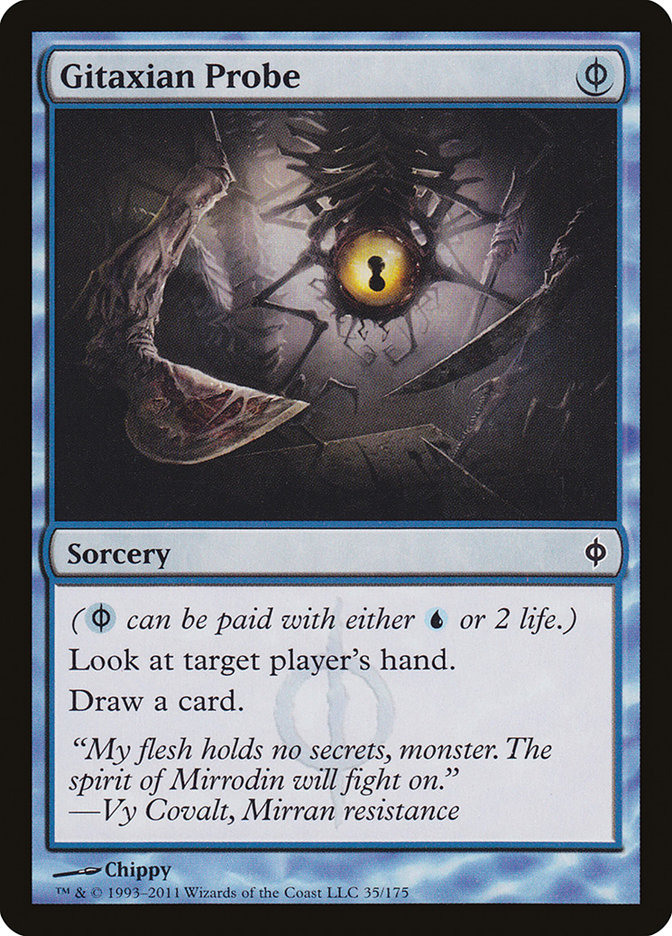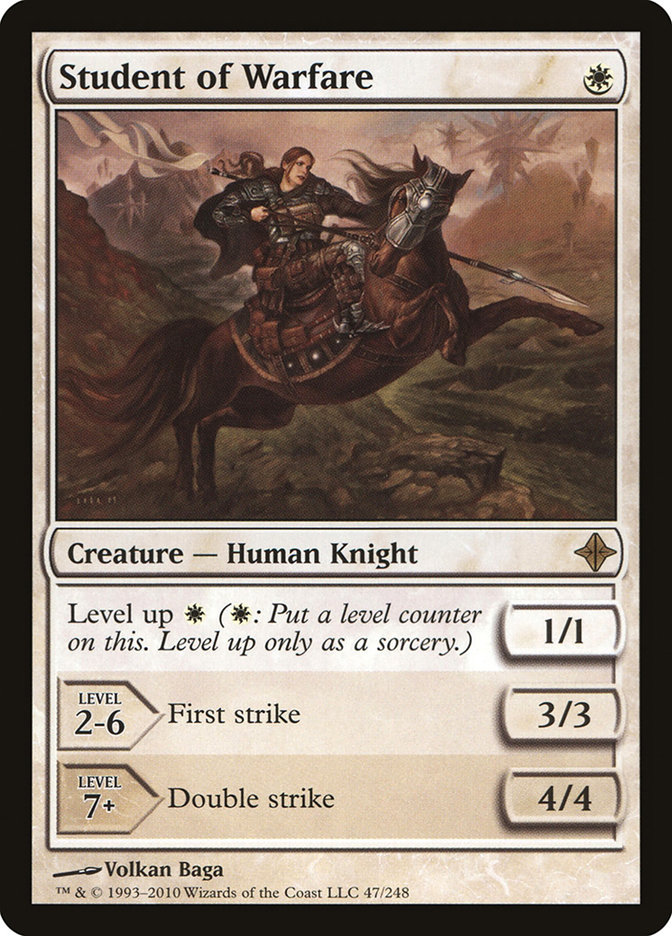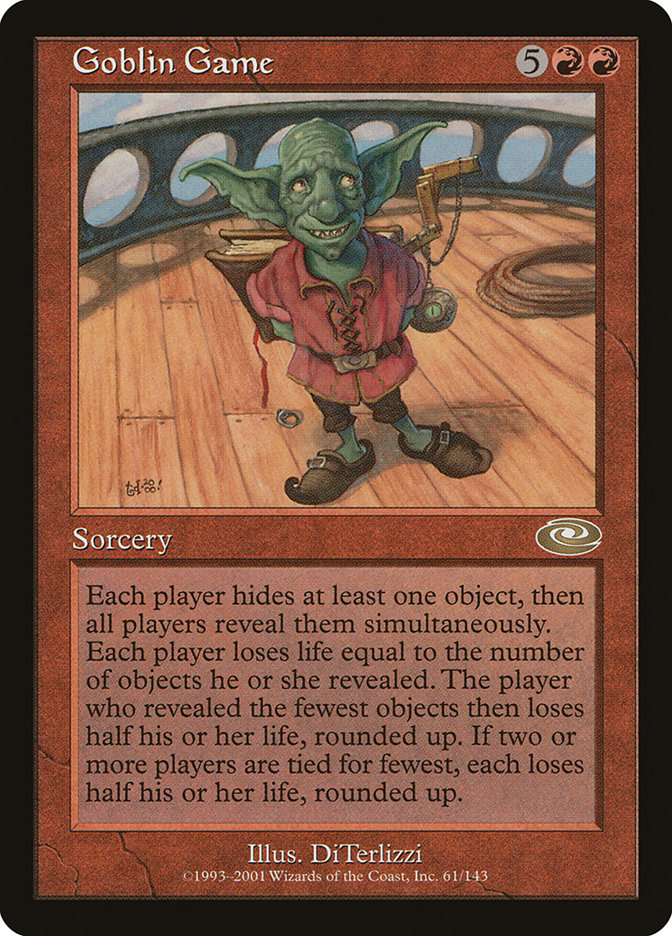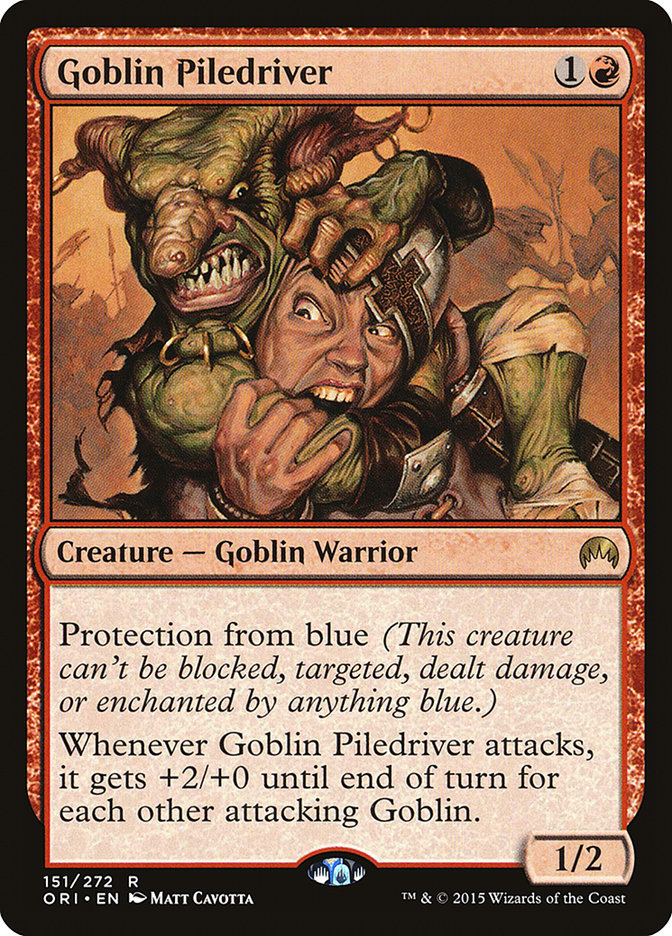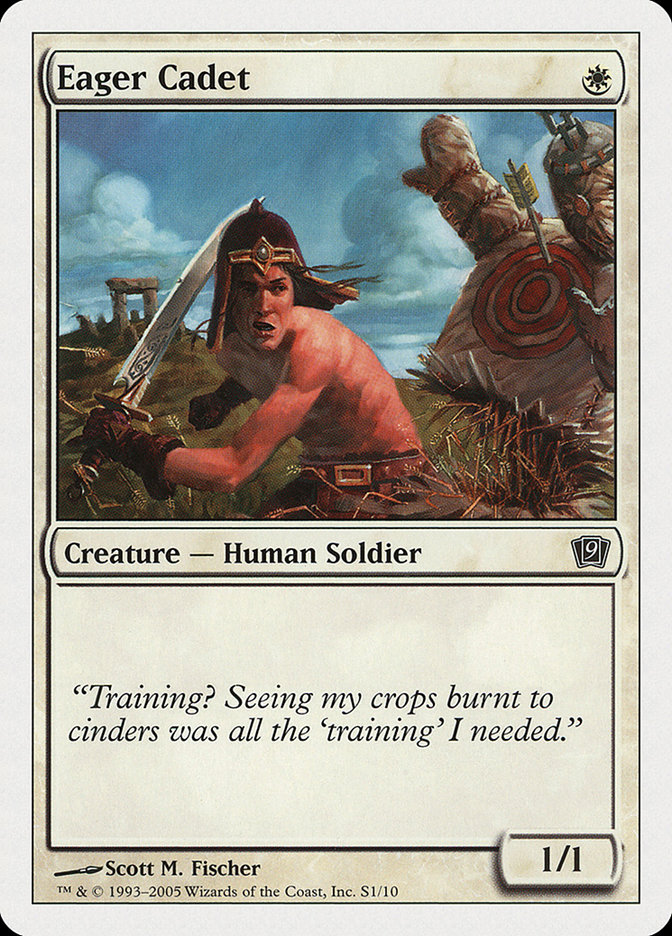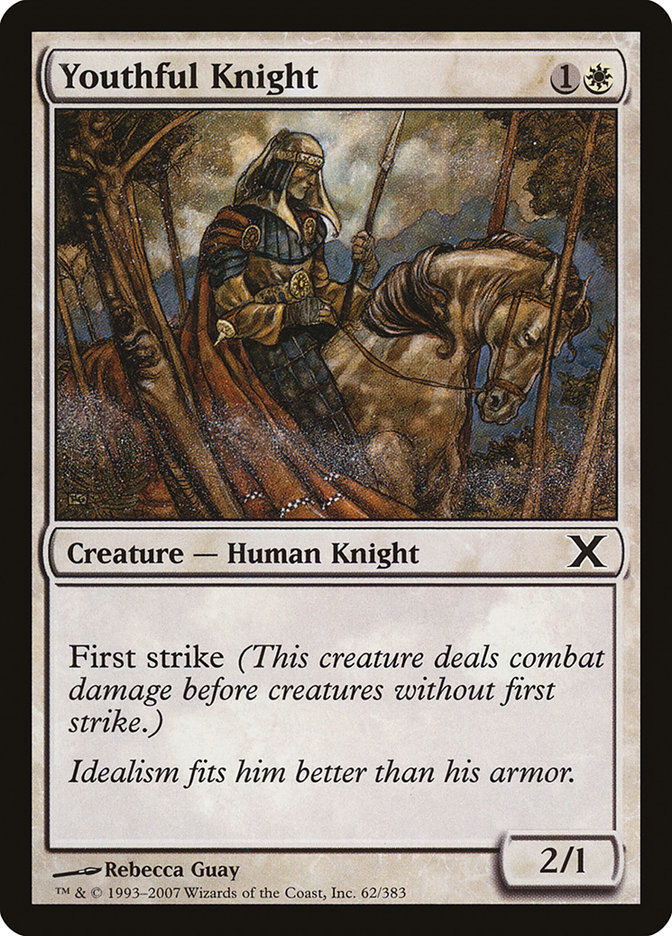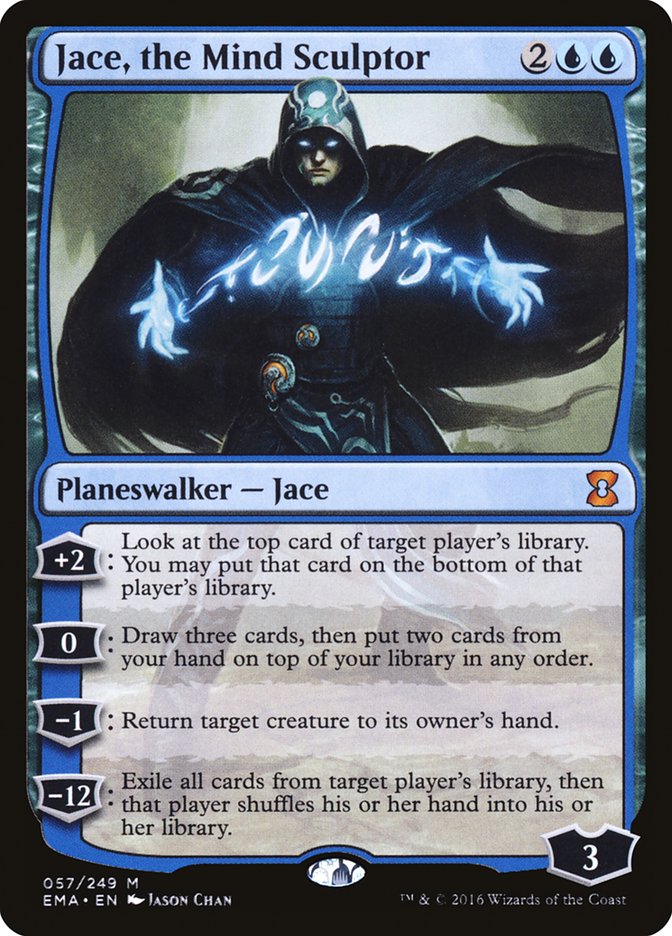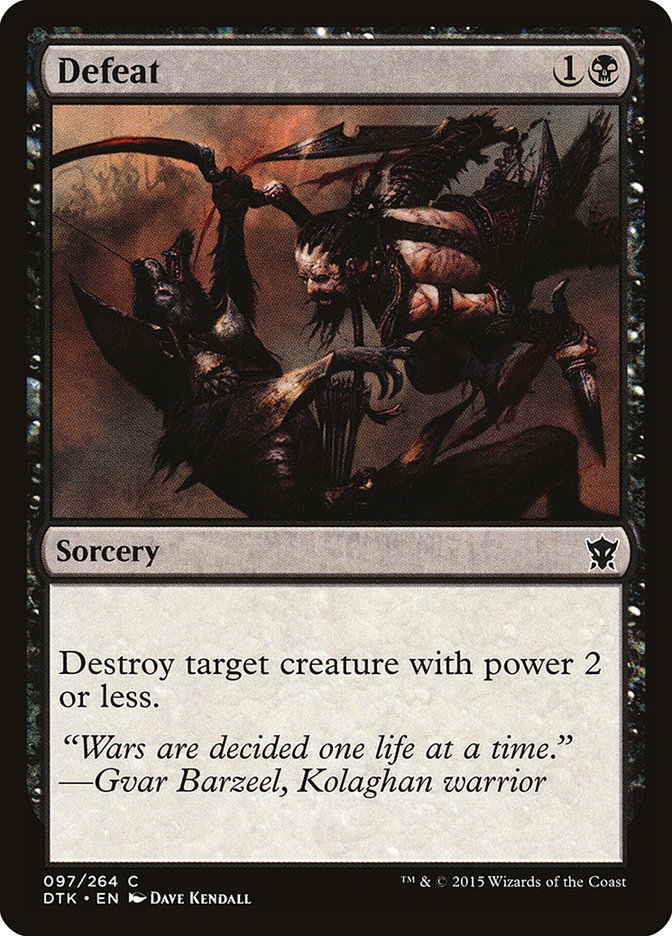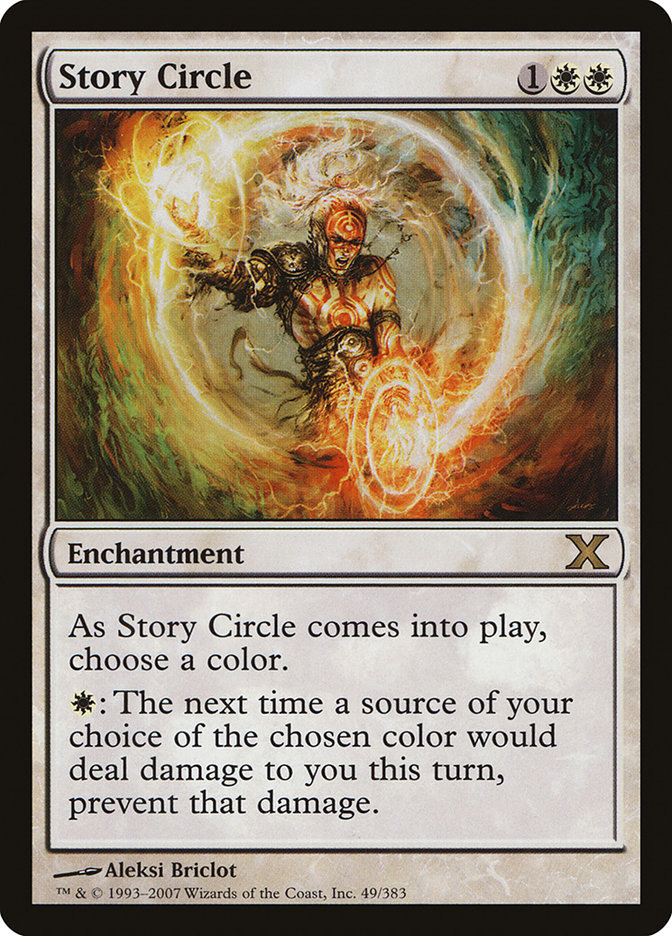Knowing your opponents can be very helpful when playing Magic. You can garner information about the game, meet new friends, help a new player, or grow into a better player yourself. Magic is a competitive game, so there would be no game without our opponents; there is not an AI system that can play high-level Magic, and there may never be. It is a very complex game with lots of intricacies.
Here I will talk about how to be a good opponent, and how to read your opponents to gain an advantage on the game.
Reading Your Opponent
There are several common tells that many people will exhibit subconsciously that you can use to your advantage. Watching your opponent’s facial expressions and body language can give you a lot of information on the state of the game and the position they believe they are in.
Some of the most obvious tells are if your opponent is holding their hand, flicking their cards, or has set them on the table. For some players flicking their cards is simply a habit, but if someone only does it occasionally it can often be a sign that they are in a tight spot or are thinking very hard. An opponent who has passed the turn with no mana open or no responses to anything you might cast may set their hand on the table. Sometimes you can assess whether your opponent has countermagic, removal, or other responses by watching their hand-holding habits.
Reading facial expressions is something that people do without realizing it. You can often look at a person and see if they are in a good or bad mood, if they are concentrating or frustrated. These skills can translate to playing Magic as well. You can watch your opponent’s face early in the game before things get too complicated to have a baseline and then watch to see if they become disappointed, frustrated, or angry. If this happens, they likely do not have removal or countermagic to interact with your play. You can also watch for enhanced confidence, joy, or pride. This means they are likely in a good position and you should be careful and play around the cards they may have.
There are other signs of nervousness as well, such as nail biting or fidgeting. Your opponent may get more or less talkative throughout the match. These things can be clues to how the game is going from their perspective. The better you know your opponent, or the more you play against them, the easier it becomes to read their tells. Just by being observant, you can get little advantages from your opponent’s reactions.
Knowing the metagame can help you to read your opponent better as well. Even before a match begins, you can sometimes get a feel for how they expect a match to go. An opponent who is playing a hyper-aggressive deck may only have a few things pulled out of their bag, ready to finish the game quickly and move on, while an opponent on a slower deck may have settled in a little bit more. This is not always true, and all information you get from reading your opponent should be taken with a grain of salt.
Once you have identified what deck they are playing, you can start to make more informed decisions. You can know which cards in their deck would be bad for you in a given situation, and if their body language becomes more confident, you can suspect that they are more likely to have the spell that would be bad for you, whereas if they seem to be defeated, you know that you were able to answer a crucial play of theirs and have put them at a disadvantage. People are all different, so some opponents who have been put at a disadvantage may become more focused, while others may give up on the game and stop trying to win.
Normally people are not able to manipulate these tells to their advantage. Some players may try, but it is often very obvious if they are faking something. There are also reverse tells, where an opponent reacts in an overly exaggerated manner where it begins to seem unnatural. This may be a sign that they are trying to bluff you or manipulate tells to confuse you. If you decide to try to throw an opponent off by changing your behavior, be very careful. It is very easy to fall into reverse tells.
Playing at Different Levels
There is often a different dynamic between opponents based on your level of play. Players range from casual kitchen table mages looking only for fun to high level pros battling over thousands of dollars, from new players to those who have been playing for decades.
Some people play exclusively at home with close friends. This tends to be a less competitive scene and the interactions between players are often more casual. You will find less optimized decks and lower skill level of players in most of these situations.
At FNM you will find a wide range of players, but one store will tend to settle with similar skill-level players as the store’s regulars. These events are casual and meant to be fun and welcoming for all players. Because it is a local environment, you will find new players and old friends mixed together in a casual evening of fun.
Once people start performing well at FNM, the next step in competition is Invitational Qualifiers or Grand Prix Trials. These are semi-local tournaments that are run more competitively. You can expect people to be taking the tournament more seriously and to be less friendly during the match.
If you are interested in high-level competition, look no further than the SCG Tour or Grand Prix. Here you will find a large turnout of the best players. People will travel very far to compete and try to win a large cash prize. Here (as the saying goes) your opponent does not have your best interest at heart and will be trying their best to win. Players are often very friendly after or between matches but are very serious and competitive during the games.
Another level dynamic is playing for fun versus playtesting.
Players of all skill levels will play for fun and relax while playing. This tends to be friendly and casual. When you are playtesting, you often are playing with close friends, but you are playing with a very different focus: you are working together to increase your skill and knowledge of Magic. This will be much more serious and, while it may still be fun, will be more like studying or work than jamming games with your buddies.
Playing at each of these levels is fun and exciting. Find the right play level for what you are looking to get out of Magic. Whether it is to have fun, to grow as a player, or to compete with the best, there is always a place for every Magic player.
New Players
When you get the opportunity to play against new players, make sure to be nice and patient. Everyone has to learn somewhere, and the more fun they have, the more likely they are to return. The more players we teach to love Magic, the more opponents we have at all levels. The only way the game grows is by bringing new players in and making them feel welcome.
You never know what potential a new player may hold. Many people will want to play for fun and that is a wonderful place to be. If you are playing against a new player, pay attention to what excites them and encourage them to continue in that direction. Some players love Commander, while others get lots of excitement from competing at a high level. Your new player may become a future Invitational or World Champion, so never turn away someone eager to play.
Experienced Players
Chances are, if you are reading this article, you are probably an experienced player. Most players are in this category and are great friends, opponents, and teachers. Together we learn to play better and grow as people. These are the people you will see at tournaments and they can play for a variety of reasons.
Pros
At the top of the food chain are the professional Magic players. These are the people you see on coverage and follow their successes. You will often only see them at super-local events, like FNM, or very large events like Grand Prix. These players are known and respected for their skill in Magic and can carry something called a “fear aura.” You can learn more about fear auras in “Playing to Win” by David Sirlin, but basically they can intimidate other players into playing worse simply by playing at their own skill level. These players are often super-nice but are normally very serious while playing.
Winning and Losing
Everyone wants to win, but to some that may mean playing a super-cool combo instead of being the survivor at the end of the match. Whatever winning means to you, there are important ways to act so you are not seen as a poor winner or poor loser.
Winning Well
It is okay to be happy that you have won a game. There is no rule against smiling or feeling proud of your accomplishments. But there is a line that is going too far. You want to make sure you don’t brag about your win or start telling your opponent about all of the mistakes they made during the game. Only offer help or suggestions if your opponent is interested. You can also read your opponent in this situation to find out what kind of interaction they would like after the game is over. If they are looking curious or confused, you may be able to offer suggestions, but if they are trying to leave very quickly or look upset, it is probably best just to let them go.
Losing Well
When a game is clearly over and unwinnable, it is common courtesy to concede the game to your opponent and move on. If there is any chance you can come back and win, feel free to keep battling, but in general, if you are in an infinite combo lock of some sort, it is expected that you will concede and proceed to the next game.
Most people do not like to lose, and when they are not doing well, they can get upset. In gaming this is often referred to as being salty. Everyone gets salty sometimes. It is a part of human nature. There is no way to insure that you will never get salty, and that is okay. There are ways you can work around or through being salty without hurting the people around you.
Have tricks that work for you after a match doesn’t go well. Take a few deep breaths and then do something that can help you to relax. I know many people who will listen to music or go for a walk outside to get some fresh air. You can talk to your friends, get some quiet time, grab a snack, or even bring along a coloring book to help you relax between matches at large tournaments.
If your game did not go well and you are curious what you could have done differently, feel free to ask for advice from your opponent. If you had a hard decision to make in the game, feel free to ask what they think the right play was in that situation, either based on what was in their hand, or what might have been in their hand based on the deck they are playing. Chances are they know the deck they are playing better than you do.
Start a conversation with you opponent. If they don’t seem interested in talking, let them go and explain the game state to your friends and get their opinions. This may not be quite as helpful as getting your opponent’s opinion, but it can still help you learn. If you know of and respect a player, feel free to pick their brain after a match. Most Magic players are very happy to help others grow.
Sometimes it happens that you do not perform very well in a tournament. It is okay to scrub out of a tournament. There are always other things to do. Join a side event or check out what sights there are to see in the city you are in. Try to enjoy your tournament, and don’t let your results get you down. You can always do better, and you can always do worse. Magic is a game and is supposed to be fun above everything else.
Community
The people are part of what makes the Magic community great.
Without other people playing the game, you would never be able to play. Cultivating other players is very important, and taking the time to get to know the people you see regularly at events is really rewarding. I have met many of my friends by playing against them or seeing them around a tournament first and then getting to know them better.
If you play someone in the early rounds of a tournament and see them later, ask them how they are doing. People love talking about themselves, so being interested in their record and their day can help you make new friends. I remember seeing Emma Handy at many SCG events and eventually got up the nerve to talk to her. She is always surrounded by other good players like her. I asked her how she was doing and talked to her for a few minutes. I kept seeing her at other tournaments and eventually we started to talk more and become closer.
I also met Robert Wright during a feature match and talked to him after the match was over. We got along, and I met up with him a few times that day between rounds. Now whenever I see him at events I make sure to stop by and talk. People are my favorite part of Magic, so I try to make friends at every event I go to.
Opponents are very important, and not just because we couldn’t play without them. Being able to understand opponents and read any body language or tells that they are signaling can help you to win more as well. Do you have any stories about meeting friends by playing Magic or about knowing just what to do because you could tell what your opponent was thinking? Let me know, and as always, happy gaming!


